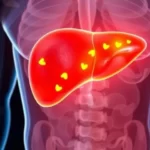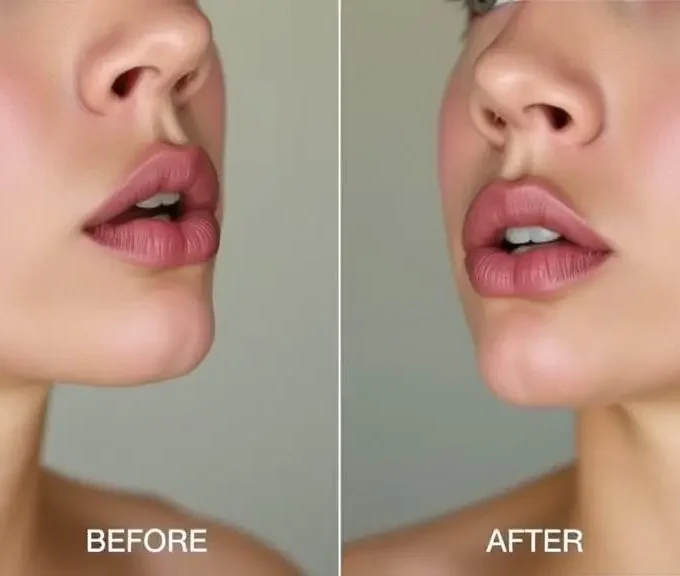Could a simple kiss or shared spoon impact your oral health? Many people wonder if gum disease is contagious, and the answer isn’t as straightforward as you might think. Gum Infection, one of the most common oral health issues worldwide, starts with bacteria. But can contagious gum disease be passed between people? In this article, we’ll explore how gum Infection develops, the role bacteria play in its transmission, and what steps you can take to protect yourself and your loved ones.
Understanding Gum Disease: The Basics
Gum disease, also known as periodontal disease, begins with a buildup of plaque, a sticky film of bacteria that forms on teeth. Over time, this dental plaque hardens into tartar, which can cause gum infection. If not removed through daily brushing and flossing, it can irritate the gums and lead to inflammation. The earliest stage, gingivitis, causes red, swollen, or bleeding gums. If left untreated, it can progress to periodontitis, where the infection damages the soft tissue and bone that support your teeth. Millions of people suffer from gum Infection, often without knowing it, making awareness and early treatment essential to prevent serious oral health issues.
What Really Causes Gum Disease?
At its core, gum disease begins with plaque, a sticky film of bacteria that clings to your teeth. When plaque isn’t removed regularly, it hardens into tartar, which irritates the gums and creates the perfect environment for bacteria to thrive.
Some of the most notorious bacteria involved are Porphyromonas gingivalis and Treponema denticola, which produce toxins and inflame the gums. While poor oral hygiene is a major contributor, it’s not the only one. Genetics, immune health, smoking, and even hormonal changes can increase your vulnerability.
Is Gum Disease Contagious? What Science Says
Technically, gum disease itself isn’t contagious like the flu, but the bacteria that cause it can be transmitted. Scientific studies show that harmful oral bacteria, especially those linked to gum Infection, can spread through saliva. This leads to questions like “Is gingivitis contagious?” or “Is periodontitis contagious?” and the answer is yes, to a degree, because the bacteria responsible can move between hosts. This means that everyday actions, such as kissing, sharing utensils, or even using someone else’s toothbrush, may transfer these bacteria between people. The spread of mouth bacteria is a real phenomenon. While not everyone exposed will develop gum Infection, those with poor oral hygiene or weakened immune systems are more susceptible to it.
How Gum Disease Progresses From Irritation to Infection
Periodontal disease doesn’t happen overnight. It develops gradually, in stages, each more destructive than the last. The earliest stage, gingivitis, often starts with inflamed gums that bleed easily during brushing or flossing. At this point, the infection remains on the surface and hasn’t yet reached the bone.
If left untreated, the infection progresses deeper. Gums start to pull away from the teeth, creating pockets where bacteria can hide. This is mild to moderate periodontitis. The deeper the pockets, the more difficult they are to clean, and the more damage bacteria can do. Eventually, without intervention, the infection begins to destroy the very bone that holds your teeth in place. This final stage, advanced periodontitis, can result in painful chewing, loose teeth, and even tooth loss.
High-Risk Scenarios for Transmission
While casual contact poses little threat, certain situations increase the risk of spreading bacteria that cause gum disease. Couples who frequently kiss or share drinks may unknowingly exchange bacteria over time. Parents’ health is especially relevant when considering the transmission of “kissing and gum infection.” Young children who share utensils or clean pacifiers with their mouths can also transmit bacteria. Additionally, individuals with weakened immune systems, such as the elderly or those with chronic illnesses, are more susceptible to developing gum infections upon exposure to bacteria. Close-contact environments, such as households, schools, and care facilities, can facilitate the transmission of diseases if good oral hygiene practices are not regularly maintained.
How Saliva Helps Bacteria Spread
Most people are unaware that their saliva contains a complex mixture of bacteria, some beneficial and some harmful. When you kiss someone, share a drink, or even bite into the same piece of food, you’re not just sharing a moment, you’re sharing microbes.
Within families, this leads to a sort of microbial fingerprint, where parents and children often carry the same strains of oral bacteria. Suppose someone in the home has untreated gum disease. In that case, others are at increased risk, not because the disease is “contagious,” but because the environment allows harmful bacteria to pass and persist.
Even small actions, such as cleaning a pacifier with your mouth or sharing a toothbrush, can open the door for these bacteria to establish themselves in someone else’s mouth.
Preventing the Spread of Gum Infection Without Losing Intimacy
You don’t have to stop kissing your partner or sharing birthday cake with your child, but you do need to be smart about hygiene.
Maintaining your oral health is the first defense. Brushing twice a day, flossing daily, and using an antimicrobial rinse help reduce the number of bacteria in your mouth. It’s also wise to avoid sharing toothbrushes or dental tools, and to gently discourage your kids from putting shared objects in their mouths.
If someone in your family is being treated for gum disease, it’s a good idea for everyone else to get checked too. Catching early signs, such as gum tenderness or bleeding, can help prevent the problem from escalating.
Treating Gum Disease: From Gentle Cleanings to Surgical Support
The earlier you catch gum disease, the simpler the treatment will be. For gingivitis, a professional cleaning followed by consistent at-home care can usually reverse the problem.
As the condition advances, more intensive treatments may be needed. One common approach is scaling and root planing, a deep-cleaning method that reaches below the gumline to remove hardened plaque and smooth out the root surfaces, discouraging further buildup.
In more severe cases, surgical options such as pocket reduction, gum grafts, or bone grafts may be necessary. Some periodontists also use laser technology, such as LANAP (Laser-Assisted New Attachment Procedure), to treat infected tissue with minimal discomfort.
Other advanced techniques involve the use of platelet-rich plasma (PRP) or platelet-rich fibrin (PRF)—both derived from your blood to speed up healing and stimulate tissue regeneration.
How Gum Disease Affects Overall Health
Gum disease doesn’t just stay in your mouth. Once bacteria breach the gum barrier, they can enter your bloodstream and affect your entire body. Numerous studies have linked chronic gum infections to severe systemic conditions.
Researchers have found strong associations between periodontal disease and:
- Heart disease and stroke due to systemic inflammation
- Diabetes complications, such as gum infections, make blood sugar control more complicated.
- Pregnancy risks, including low birth weight and preterm delivery
- Alzheimer’s disease, with gum bacteria found in brain tissue
- Rheumatoid arthritis, as an oral inflammation, can worsen joint symptoms
What this shows is clear: taking care of your gums is taking care of your whole body.
Natural Remedies and Lifestyle Support for Healthier Gums
While professional care is crucial, there are natural ways to support your gum health daily. These methods won’t replace your dentist, but they can complement your routine and reduce inflammation.
Here are a few science-backed options:
- Oil pulling: Swishing coconut or sesame oil in your mouth for 10–15 minutes can help reduce bacterial load.
- Green tea: Rich in antioxidants, it can improve gum health and reduce bleeding.
- Vitamin C and D: Both are crucial for gum healing and immune function.
- Quit smoking: Tobacco use dramatically increases your risk of gum disease.
- Stay hydrated: Saliva helps neutralize bacteria and wash away food particles.
When to See a Dentist and Why It’s So Important
Many people wait until pain sets in before booking a dental appointment, but by then, gum disease may have advanced to an advanced stage. Pay attention to the early warning signs—your gums are trying to tell you something.
Contact your dentist if you notice:
- Gums that bleed easily when brushing or flossing
- Persistent bad breath or a metallic taste
- Teeth that feel loose or shift position
- Red, swollen, or receding gums
- Pain when chewing
Routine checkups every six months are your best line of defense. However, if someone in your household is being treated for gum disease, it is recommended that everyone else be screened as well, especially in close-contact environments.
Conclusion:
So, is gum disease contagious? Not in the traditional sense, but the bacteria responsible for it can be passed from person to person. Saliva-sharing habits, such as kissing or sharing utensils, may contribute to this spread, especially when oral hygiene is neglected. Understanding how contagious gum disease bacteria spread allows you to take preventative action. Fortunately, gum infection is highly preventable with proper care and regular dental visits. Staying informed, practicing good hygiene, and encouraging loved ones to do the same can make a big difference.
“So, what’s my final advice? Please don’t panic. The bacteria that cause gum disease can be passed through saliva, but this doesn’t mean you have to stop showing affection. From my clinical experience, the best defense is a great offense. If you and your partner both practice excellent oral hygiene and see your dentist regularly, the risk of transmission is very low. The most important thing is open communication and taking care of your health, together.”
Frequently Asked Questions
Can you catch gum disease from someone?
You can’t “catch” gum disease like a cold, but the bacteria that cause it can be transmitted through saliva, especially via kissing or shared utensils.
Can I kiss someone with gum disease?
Yes, but it carries a small risk. Saliva can transfer harmful bacteria, so good oral hygiene is essential for both partners.
What if my partner has gum disease?
Encourage them to seek dental treatment and maintain excellent oral hygiene. You should also avoid sharing toothbrushes or dental tools.
Can you give oral care if you have gum disease?
It’s best to consult a dentist. Active gum disease increases bacteria levels, which could pose risks if transmitted to a partner with an open wound or weakened immunity.
Can you spread a tooth infection to another person?
While less common, some bacteria associated with tooth infections can be transmitted through saliva. The risk is higher in close-contact relationships.
Does gum disease go away?
Early-stage gum disease (gingivitis) can be reversed with proper care. Advanced stages (periodontitis) require professional treatment to manage.
Medically Reviewed by Dr. Muhammad Usman
References
American Dental Association (ADA). Gum Disease. https://www.ada.org/resources/research/science-and-research-institute/oral-health-topics/gum-disease
Centers for Disease Control and Prevention (CDC). Oral Health Conditions. https://www.cdc.gov/oralhealth/conditions/index.html
National Institute of Dental and Craniofacial Research (NIDCR). Periodontal Disease. https://www.nidcr.nih.gov
Mayo Clinic. Gum Disease – Symptoms and Causes. https://www.mayoclinic.org/diseases-conditions/gingivitis
Cleveland Clinic. Gum Disease (Periodontitis). https://my.clevelandclinic.org/health/diseases/10946-gum-disease-periodontitis












Leave a comment